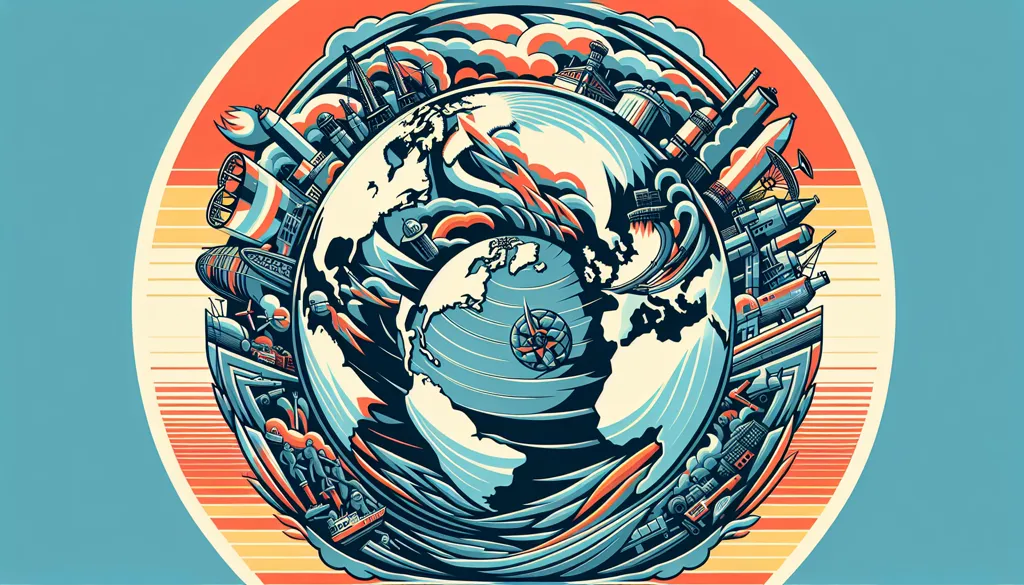The Complex Web of Global Conflict and Local Tragedy
As a mother and journalist, I find myself constantly navigating the turbulent waters of global conflicts and their repercussions on our local communities. Recently, a tragic event in Washington, D.C., where two Israeli Embassy staff members were shot and killed, highlighted the stark realities of international tensions manifesting close to home. The suspect reportedly shouted "Free, free Palestine" as he was apprehended, underscoring the deep-seated issues at play.
The Incident in Washington, D.C.
The shooting outside the Capital Jewish Museum was not just a local tragedy but a reflection of the ongoing global conflict between Israel and Palestine. The suspect, identified as Elias Rodriguez from Chicago, acted alone, according to police reports. The immediate response from officials and the community was one of shock and condemnation, with a strong emphasis on combating antisemitism and protecting Jewish communities.
Understanding the Broader Context
This incident comes amidst heightened tensions worldwide regarding the Israeli-Palestinian conflict. Discussions have intensified around the use of technology in warfare, particularly the controversial narrative of an "AI-powered genocide" in Gaza. This narrative, while alarming, is often criticized for diverting attention from the human decisions and ideologies driving the conflict. As a mother, I am deeply concerned about the world we are shaping for our children, where technology is increasingly used to justify or obfuscate human actions.
The Role of Education and Indoctrination
Education plays a critical role in shaping perspectives. Reports of Zionist indoctrination in schools highlight how deeply ingrained beliefs can influence young minds. Former students from Jewish schools in Canada and the U.S. describe an environment where Israel is omnipresent, and where anti-Arab sentiments are prevalent. This type of education can lead to lifelong biases, which are difficult to reconcile later in life.
Personal Reflections
As someone who grew up in a Midwestern suburb, my educational background was quite different. However, I can empathize with the challenges of breaking free from ingrained ideologies. It’s crucial to provide our children with diverse perspectives and teach them critical thinking skills. This ensures they can form their own informed opinions rather than adopting a single narrative.
The Role of Journalism in Conflict Zones
Journalists play a vital role in conflict zones, often risking their lives to bring us stories from the front lines. Trey Yingst, a reporter for Fox News, has been vocal about the dangers faced by journalists, particularly in Gaza. The high death toll among journalists in this conflict is a stark reminder of the risks they take to provide us with unbiased reporting. As a fellow journalist, I deeply respect their courage and dedication.
The Importance of Neutral Reporting
Yingst emphasizes a balanced approach, stating, "I am not pro-Israel, I am not pro-Palestine, I am pro-truth." This stance is crucial in maintaining credibility and ensuring that the stories we tell are not skewed by personal biases. As a writer, I strive to maintain this balance, even when the topics hit close to home.
The Impact of Technology on Warfare
The notion of "AI-powered" warfare has become a contentious topic. Critics argue that it shifts blame from human decision-makers to machines. This narrative can be misleading, as it suggests that technology operates independently rather than being a tool used by humans to achieve specific goals. Understanding this distinction is vital in addressing the root causes of conflict rather than the symptoms.
Personal Insights
From my perspective, it’s essential to focus on the human element in these conflicts. Technology might enhance capabilities, but it doesn’t replace the moral and ethical decisions that individuals and governments must make. As a parent, I worry about the kind of world my children will inherit, where technology can either be a tool for peace or a weapon of destruction.
Conclusion
The tragic events in Washington, D.C., are a microcosm of the larger global issues that affect us all. As individuals, we must strive to understand the complexities of international conflicts and their local implications. By fostering open dialogue and promoting unbiased education, we can hope to create a more peaceful future for our children. As a journalist and a mother, I remain committed to these values, seeking to bridge the gap between global events and their impact on our local communities.

